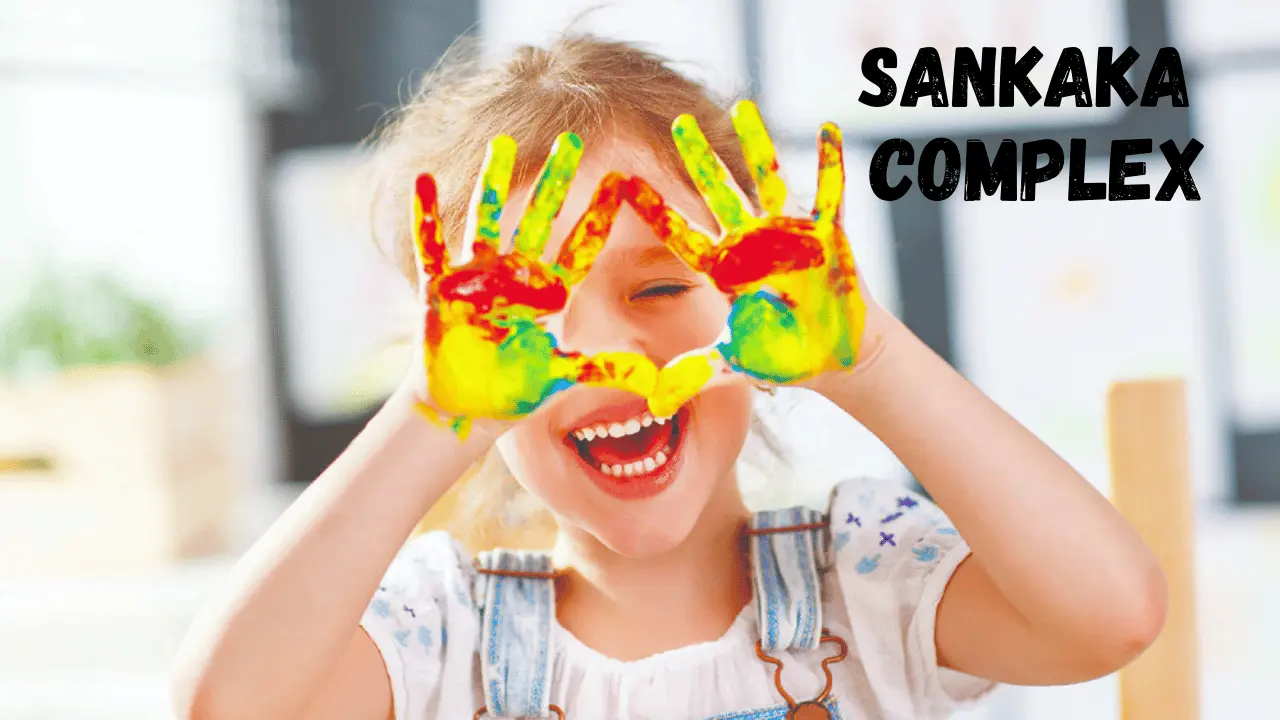The term “Sankaka Complex“ has gained attention in various discussions, yet its meaning and implications remain unclear to many. This article aims to provide a detailed exploration of the Sankaka Complex, covering its origins, cultural significance, psychological impact, and modern interpretations. Whether you’ve encountered this term in academic discourse, online forums, or casual conversations, understanding its full context is essential.
The Sankaka Complex is not just a phrase but a concept that intertwines history, psychology, and societal influences. By breaking down its components, we can better grasp why it continues to be a topic of interest. This article will delve into its background, analyze its effects, and address common questions surrounding it.
What Is the Sankaka Complex?
The Sankaka Complex refers to a psychological or sociocultural phenomenon that influences behavior, perception, or identity. While its exact definition may vary depending on context, it generally describes a set of ingrained beliefs or emotional responses tied to a particular experience or cultural background.
Some interpretations suggest that the Sankaka Complex arises from historical events, societal structures, or personal traumas that shape collective or individual consciousness. Unlike standalone psychological conditions, this complex is often linked to broader cultural narratives.
Understanding the Sankaka Complex requires examining its roots and how it manifests in different environments. Whether in literature, psychology, or social studies, this concept provides insight into deep-seated behavioral patterns.
Historical and Cultural Origins of the Sankaka Complex
To fully comprehend the Sankaka Complex, we must explore its historical and cultural foundations. The term appears to have roots in specific traditions, possibly deriving from linguistic, mythological, or historical influences.
Possible Linguistic Roots
The word “Sankaka” may originate from an ancient dialect or cultural lexicon, carrying meanings related to conflict, duality, or unresolved tension. Some scholars associate it with folklore or mythological tales where characters experience internal struggles mirroring the Sankaka Complex.
Societal Influences
In certain societies, the Sankaka Complex could describe a generational mindset shaped by historical events such as colonization, war, or systemic oppression. These collective experiences create long-lasting psychological effects that influence decision-making, self-perception, and interpersonal relationships.
By studying these origins, we gain a clearer picture of why the Sankaka Complex persists and how it continues to shape behaviors today.
Psychological Interpretations of the Sankaka Complex
From a psychological standpoint, the Sankaka Complex may align with existing theories of cognitive and emotional conditioning. Below are key perspectives that help explain its mechanisms.
Freudian and Jungian Parallels
Some psychologists compare the Sankaka Complex to Freud’s theory of repressed emotions or Jung’s archetypes. It may represent an unconscious conflict that surfaces in behaviors, dreams, or defense mechanisms.
Cognitive Behavioral View
Cognitive behavioral theories suggest that the Sankaka Complex could stem from learned thought patterns. For example, repeated exposure to certain societal norms may condition individuals to adopt specific beliefs, even if they are self-limiting.
Impact on Mental Health
If left unaddressed, the Sankaka Complex may contribute to anxiety, identity crises, or social withdrawal. Recognizing its presence is the first step toward mitigating its effects through therapy, education, or cultural reevaluation.
Modern Relevance of the Sankaka Complex
In contemporary discourse, the Sankaka Complex remains relevant in various fields, including sociology, literature, and self-help. Here’s how it applies today.
In Media and Literature
Films, books, and art often depict characters grappling with the Sankaka Complex, using it as a narrative device to explore internal conflict and societal pressures.
Social and Political Implications
The Sankaka Complex can explain group behaviors in politics or activism, where collective trauma influences movements and ideologies. Understanding this can foster empathy and more effective communication.
Personal Development
Awareness of the Sankaka Complex allows individuals to identify self-sabotaging beliefs and work toward healthier mindsets. Techniques like mindfulness and cognitive restructuring can help overcome its limitations.
Debunking Myths About the Sankaka Complex
Misconceptions surround the Sankaka Complex, leading to confusion. Let’s clarify some common misunderstandings.
It’s a Diagnosable Mental Disorder
Unlike clinical conditions, the Sankaka Complex is a conceptual framework, not a medical diagnosis. It describes patterns rather than pathologies.
It Only Affects Certain Groups
While cultural context matters, the Sankaka Complex can apply universally, as similar psychological dynamics exist across different societies.
It’s a New Phenomenon
The Sankaka Complex likely has historical precedents, even if it’s only recently been named and studied in depth.
How to Address and Overcome the Sankaka Complex
Recognizing the Sankaka Complex is the first step; addressing it requires deliberate effort. Here are some strategies.
Self-Reflection and Awareness
Journaling, therapy, and open discussions can help individuals identify how the Sankaka Complex affects them.
Education and Cultural Exchange
Learning about different perspectives reduces the power of ingrained biases linked to the Sankaka Complex.
Community Support
Group discussions and mentorship programs provide safe spaces to unpack and heal from shared experiences tied to the Sankaka Complex.
Conclusion
The Sankaka Complex is a multifaceted concept with deep historical, psychological, and cultural roots. By understanding its origins, implications, and modern relevance, we can better navigate its effects on both individual and collective levels. Whether through self-awareness, education, or community support, addressing the Sankaka Complex fosters personal growth and societal progress.
FAQs About the Sankaka Complex
1. What exactly is the Sankaka Complex? The Sankaka Complex refers to a psychological or sociocultural pattern of behavior influenced by historical, societal, or personal factors.
2. Is the Sankaka Complex a mental illness? No, it is not a clinical disorder but rather a conceptual framework used to explain certain behavioral and emotional tendencies.
3. How does the Sankaka Complex affect daily life? It may shape decision-making, self-perception, and social interactions, often in subtle, unconscious ways.
4. Can the Sankaka Complex be overcome? Yes, through self-awareness, education, and supportive interventions, individuals can mitigate its impact.
5. Why is understanding the Sankaka Complex important? Recognizing it helps in addressing deep-seated biases, improving mental well-being, and fostering healthier societal dynamics.
Read More: EllenDeWittRealEstate.com: A Trusted Name in Real Estate Excellence

